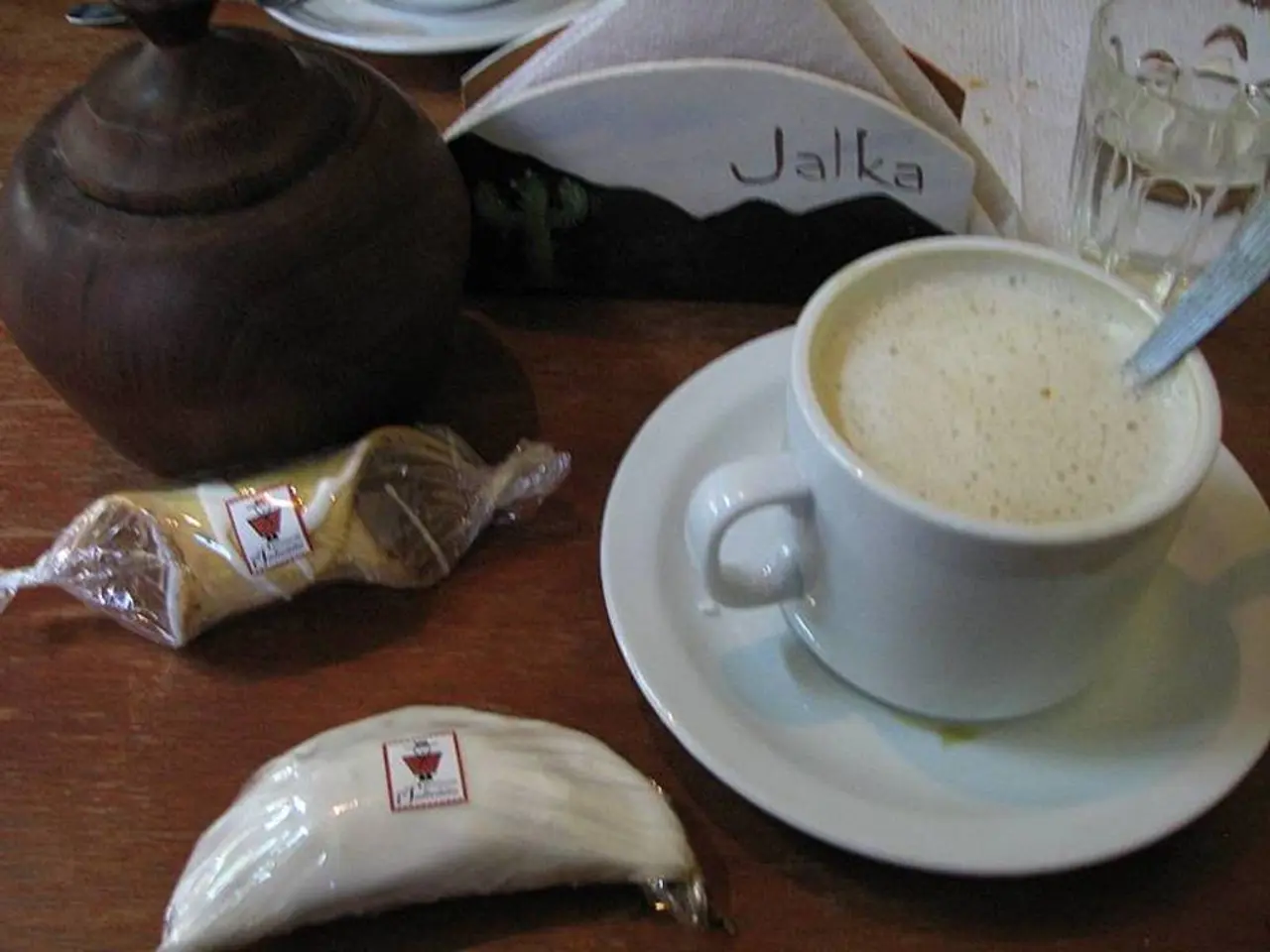Is Breastfeeding Effective in Reducing Allergies in Children's Diets?
Breast milk, a vital source of nutrition for infants, offers more than just sustenance. A recent study has highlighted the significant role of Human Milk Oligosaccharides (HMOs) in shaping infant gut microbiota and immune system development, which in turn influences the risk of food allergies.
HMOs, the third most ample milk solid after lactose, act as prebiotics, promoting the growth of beneficial gut bacteria such as Bifidobacterium species. This encourages the establishment of a healthy gut microbial community, crucial for immune tolerance and protection against allergic diseases.
The composition and diversity of HMOs vary among mothers, influenced by genetic factors and maternal factors such as allergy status and diet, including ω-3 fatty acid supplementation. Studies suggest that higher diversity of HMOs or specific HMO types may correlate with better infant growth and possibly lower allergy risk. However, the exact mechanisms remain under investigation.
Maternal allergy has been linked to reduced diversity and altered composition of HMOs, potentially impacting the infant's risk of developing allergies by affecting immune signaling and gut colonization. By promoting colonization of beneficial bacteria like Bifidobacterium, HMOs support gut barrier function and stimulate immune pathways that promote oral tolerance, key to preventing food allergy.
Components in breast milk, including HMOs and secretory IgA, work together to modulate the infant’s gut immune environment. Interventions such as maternal dietary supplementation with ω-3 polyunsaturated fatty acids can modify HMO profiles, potentially influencing allergy outcomes.
When exclusive breastfeeding is not possible, infant formulas supplemented with specific HMOs aim to mimic this protective effect by encouraging a beneficial gut microbiota and supporting immune development.
In a study conducted on 421 infants and milk samples, it was found that breastfed infants were likely at a lower risk of health conditions like asthma, wheezing, obesity, or infections. Another study, published by the journal Allergy, showed that breastfed infants didn't respond to food allergens in skin prick tests.
In summary, the specific makeup and diversity of HMOs in breast milk shape the infant gut microbiome and immune system development, which are crucial factors influencing the development or prevention of food allergies in infants. Alterations in HMO composition due to maternal allergy or diet can modify this protective effect. The overall composition of HMOs plays a crucial role in sensitizing the gut to allergic reactions, emphasizing the importance of breast milk in infant health and development. Breastfeeding could be the single most important activity between mother and infant that will protect and nourish the baby, aiding in the prevention of food allergies in early childhood.
- The significance of Human Milk Oligosaccharides (HMOs) extends beyond infant nutrition, as they shape the developing gut microbiota and immune system.
- The presence of HMOs in breast milk encourages the growth of beneficial gut bacteria, such as Bifidobacterium species, and promotes a healthy gut microbial community.
- The composition and diversity of HMOs in breast milk may influence infant growth, immune system development, and potentially reduce the risk of allergies.
- Maternal allergy or diet can impact HMO composition, which could in turn impact the infant's risk of developing allergies.
- Interventions like maternal dietary supplements can modify HMO profiles, potentially influencing allergy outcomes.
- When exclusive breastfeeding is not possible, infant formulas supplemented with specific HMOs strive to replicate this protective effect.
- Studies suggest that breastfeeding may lower the risk of health conditions like asthma, obesity, infections, and food allergies.
- Breastfeeding could be the most important activity between mother and infant, offering protection and nourishment that aids in the prevention of food allergies in early childhood.




